The sad fate of the "Disciples of John." What awaits the last Gnostics of the Middle East?
We are witnessing another tragic turn in the fate of the ancient religious communities of Syria and Iraq. Some of them, however, are in safer conditions. We are talking about Christians and Yezidis living in the territory of Iraqi Kurdistan. The Kurds were able to provide reliable protection of their lands against terrorists, and the Kurdish militia of the “Peshmerga” in Iraq and the Popular Self-Defense Forces in Syria became the most combat-ready formations fighting the militants of terrorist organizations. In addition to the Kurds themselves, both Yezidis and Christians - Armenians, Assyrians, Arabs - are fighting in the composition of these formations. They are united by the main common goal - to protect their lands from the most dangerous enemy in the person of religious extremists of the organization IG (DAISH), which is banned in Russia.
Iraq is a country with a predominance of the Muslim (Shiite and Sunni) population, but since ancient times a significant part of its population were non-Muslim communities - Christians, Jews, Yezidis, Mandaeans. After the formation of the State of Israel, the overwhelming majority of local Jews emigrated from Iraq. Christians, Yezidis, Mandeans had nowhere to go. But, while the secular regime of Saddam Hussein was in power, their position could be called more or less tolerable. Of course, Saddam did not favor the minorities, but he also did not pursue a policy designed for their total destruction. Suffice it to say that Tariq Aziz, one of Saddam’s closest associates, was a Christian by birth. His real name is Michael Johanna. The American invasion, which led to a bloody war and the intensification of terrorism, caused a wave of violence against the civilian population of the country. Representatives of non-Muslim minorities suffered the most. The mortal danger hung over the Yezidis, whom the Salafis consider "pagans" and do not belong to the "people of Scripture." Mandeans (sabii), representatives of a small ethno-confessional community living in Iraq since ancient times, found themselves in a similar situation.
Mandeism is a unique Gnostic religion, preserved in the Middle East - in Iraq and Iran, despite all its numerous wars and political upheavals. stories. Translated from the Aramaic language, “manda” means “knowledge”, that is, this name is identical to the Greek “gnosis”. However, the Mandaeans themselves prefer to call themselves “sabba” - “baptized”. The history of the Manday community of Iraq is foggy and goes back thousands of years. According to researchers, the Mandaeans at the beginning of our era came to Interfluve from somewhere in the west, most likely from the territory of Palestine, as evidenced by the specifics of Mandie’s own teaching. Some historians tend to view Mandeism as a religion that arose on the basis of pre-Christian beliefs and absorbed elements of Judaism, Christianity, and Manichaeism in its development. In the conditions of a hostile environment, the Mandaeans preferred not to dwell on the intricacies of their teachings, therefore for a long time their existence was practically unknown for the Christian world. It was only in the middle of the seventeenth century that the Carmelite missionary Ignatius, who visited the Middle East, learned of the existence of an unusual religious community. He called her “disciples of John” and referred her to Eastern Christians, since the Mandaeans practiced the baptismal rite. However, more detailed information about the Mandeas could not be obtained. Only by the end of the XIX - the beginning of the XX centuries. European researchers were able to more closely get acquainted with the teachings of this unique community. It turned out that the main sacred texts of the Mandeans were written in Aramaic. The manuscripts that fell into the hands of the researchers belonged to approximately the 16th century, but the texts contained in them, apparently, were written in the 6th-7th centuries. AD According to Geo Wiendgren, without a thorough study of the Manday texts it is impossible to form a complete picture of the Gnostic teachings of the Middle East.
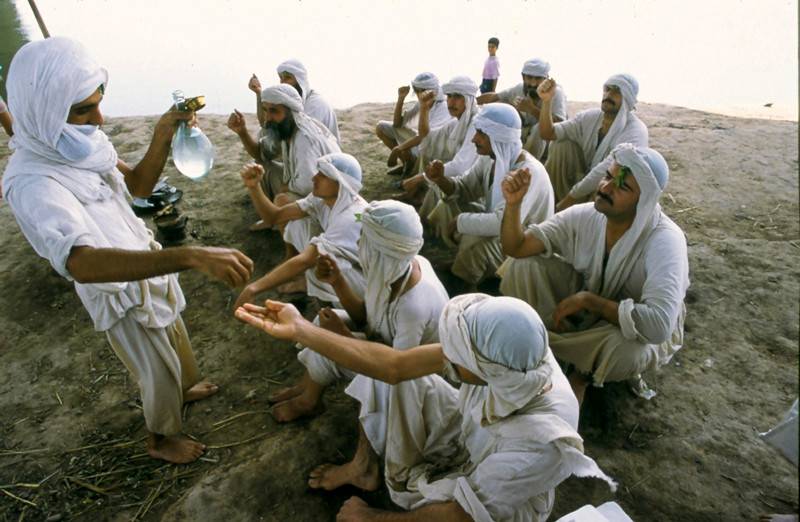
Presumably, the Manday communities could have emerged at the beginning of our era as a result of the resettlement of groups of disciples of John the Baptist to Babylonia (present-day Iraq), after which they continued to develop his teachings, gradually borrowing and the components of the teachings of other Gnostic sects, including elkesites, from whose ranks Mani the famous founder of Manichaeism. In accordance with the religious doctrine of Mandeism, all things arose from an abstract higher principle, the “Great Glory.” From it the Great Jordan expires and the Great Life or the First Life takes place - the God of Mandeism. The “second life” tried to become higher than the “First life”, for which she was punished. “Leading life” or “manda” is a sacred knowledge embodied in heavenly beings — eons that the Mandaeans worship as prophets. Among the eons are the biblical prophets and forefathers Adam, Abel, Seth, Enoch, Shem, Aram. The last aeon is John, son of Zechariah (Yahya bar Zkaria). At the same time, Abraham, Moses, Jesus, and Mohammed the Mandaeans reject and consider as false prophets. According to the Mandeans, the material world emerged after the last of the aeons looked into the “black water” and from its reflection emerged the “creator” - Gabriel. He had to create the material world, but did not cope with the commission - Adam and Eve, created by Gabriel, could not walk, but only crawled. After that, the “son of the beloved” intervened. He gave people a normal look and taught them not to honor their creator. It is noteworthy that while rejecting Moses, the Mandaeans regard biblical Egyptians as guardians of true knowledge, therefore, they treat them with reverence. One of the main religious holidays of the Mandeans is celebrated in memory of the Egyptians who died in the waters of the Red Sea. When Yishu Mishiu, Jesus Christ, began to preach in Judea, “the son of the beloved” again had to descend from heaven in order to denounce Christ as the wrong prophet who received baptism as a result of error. After the “son of the beloved” exposed Christ, the Jews crucified him. Then the “son of the beloved” returned to earth to fight against Muhammad and his son-in-law Ali. In one of the Manday sacred texts, events related to the complex relationship between Muslim Arabs and Mandaeans are described in the following way: “They fought with each other (Mandaeans and Muslims). And the people of Mesopotamia killed them. It remains of them (Mandeans) 50 houses (families). They (Muslims) pardoned them (the remaining Mandaeans). ”
The sacred texts of the Mandeans, as mentioned above, are written in Aramaic. These are the “Great Book” (“Ginza”), consisting of the “Right Part” (“Yamin”) for the living and the “Left Part” (“Smala”) for the dead, as well as the “Book of Zodiac Signs”, “Great First World” "," Small First World "," Meeting of the First Life "," Thousand and twelve questions ". It is believed that "Ginza" was initiated by Adam and completed by John (Yahya). An important role in the teachings of the Mandeus is the study of the sky and stars. According to the followers of ancient religion, stars and planets have the ability to influence the fate of people. Most likely, this moment in the teaching of the Mandeans is connected with the borrowing of the ancient Babylonian beliefs - as is well known, Babylon was famous for its "astrologers". The ritual structures of the Mandeans are small structures made of reed covered with clay. Their distinguishing feature - the lack of a roof - is associated precisely with the need to observe the sky during night services.
A distinctive feature of the Mandeans is the frequent repetition of the rite of water baptism. If Christians are baptized once in a lifetime, but Mandeas repeat baptism often enough. Since this procedure is carried out in front of everyone, the Muslims, after the capture of Mesopotamia, considered the Mandeans one of the varieties of Christianity and attributed to the "people of Scripture." By the way, the Mandaeans also baptize the dead. The followers of Mandeism are easily distinguished by their specific white robes. Similar clothes were worn by Elchessaiths and Manichaeans. The symbol of the Mandeans - Darfash - Manday cross, which is a cross, the lower part of which is covered with a cloth. The most devout Mandeans in their environment are called “Nazarites,” but those around them often use this word to designate the whole Manday community. As modern Mandaeans say, five principles underlie their religion: 1) monotheism - the glorification of the one God; 2) ablution - his mandy must be performed in running water every Sunday; 3) charity; 4) three-time prayer in the morning, afternoon and evening; 5) collection in favor of the poor on holidays and special occasions. There are several degrees of initiation in the Manday community. Below are simple baptized - "sabei." Next come the "Ishkanda" - people who can impose bans or allow some kind of action. Ishkanda eats meat only if he slaughters an animal, and washes his dishes in running water. The highest degree is “termite-a”, which Ishkanda can become, having spent two months in solitude and reading a holy book during his retreat.
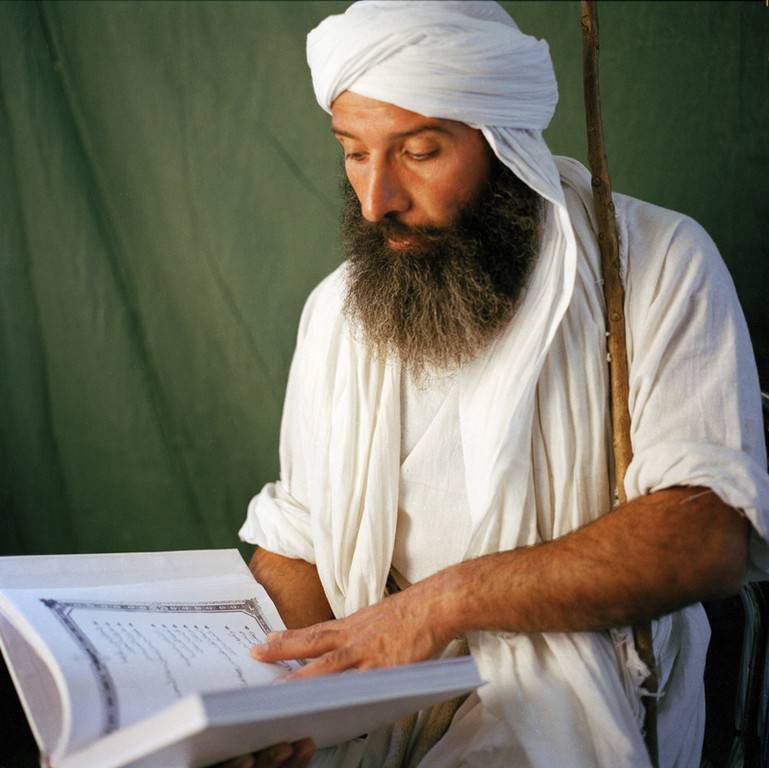
Naturally, in conditions of a hostile environment, the Mandaeans did not live easily. Nevertheless, for many centuries they were able to maintain their faith and even a decent number - about 60 thousands of people. True, after the start of the war in Iraq, the mass emigration of the Mandeans to neighboring Syria and Jordan began. The most successful traveled to the United States (Detroit and New York), Canada, Germany and even Australia. Now only in Germany live about two thousand mandeans who arrived in Germany as refugees from Iraq.
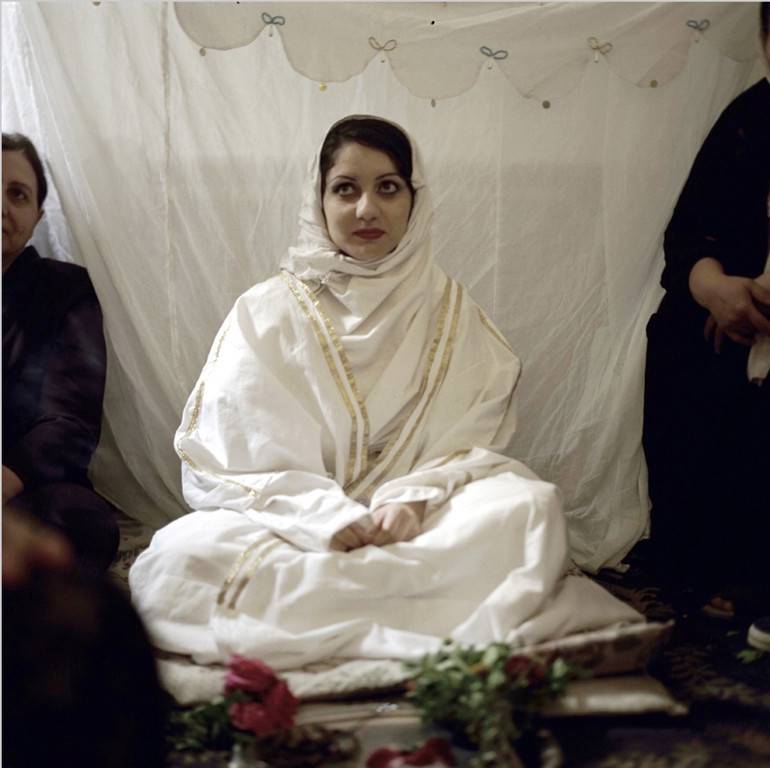
It should be noted that while preserving and preserving their teaching, in the everyday life of Manda are modern and tolerant people who easily integrate into European society. In modern Iraq, Mandaeans are subject to discrimination and persecution. The militants of the forbidden IG simply kill them. Many Manday girls were raped for wearing jeans, and the young men were forcibly cut by their own peers. Eight-year-old boy fanatics forced to jump into the fire. Fortunately, he survived, but now half of his face is a solid burn. Terrorism and domestic discrimination led to the fact that 85% Mandeans left the territory of Iraq. Currently, only about 60 thousand people are left from the 5-thousandth Manday community in Iraq. The Mandaeans feel most secure in Iraqi Kurdistan, where many of them have moved to escape the persecution of religious fanatics.
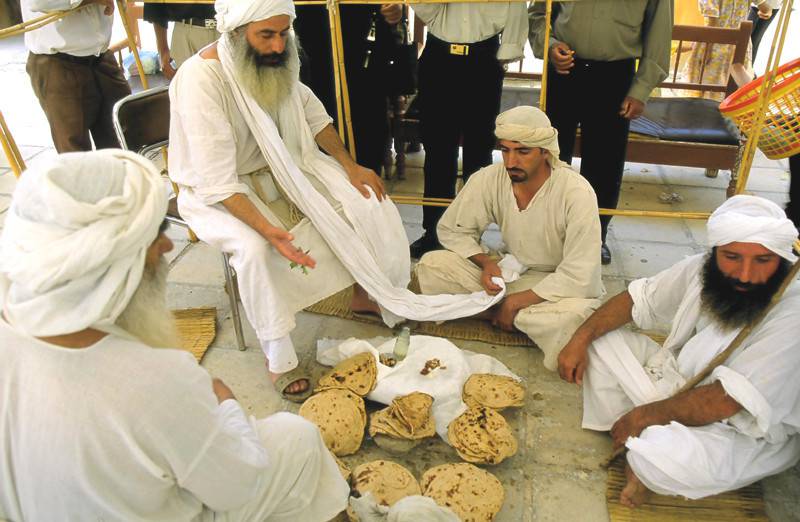
Despite the marginal position of the community, the Mandees were always knowledgeable. Among them are many well-educated people - engineers, technologists, doctors. The traditional occupation of many Mandeans was the jewelry craft, which brought good means. The war destroyed the habitual lifestyle of the Manday community. According to one of the five Mandaean Bishops of Ganzev Sattar, before the modern followers of this religion who remained in Iraq, there are actually only two ways - either, eventually, to accept another religion, or perish. After all, modern religious extremists do not recognize the status of "people of Scripture" for the Mandeans, but consider them to be "pagans", which completely unties the hands of any lawlessness in relation to representatives of the Manda community. As British political scientist Gerard Russell, who has worked in diplomatic missions in the Middle East for fifteen years, now emphasizes religious identity in the Arab world, crowding out national and civil identity. Among the majority of the population, especially young people, a model of identification through religious affiliation has been established, that is, minority minorities are no longer considered as compatriots. This large-scale transformation in the sphere of identity also leads to permissiveness in relation to other confessional communities.
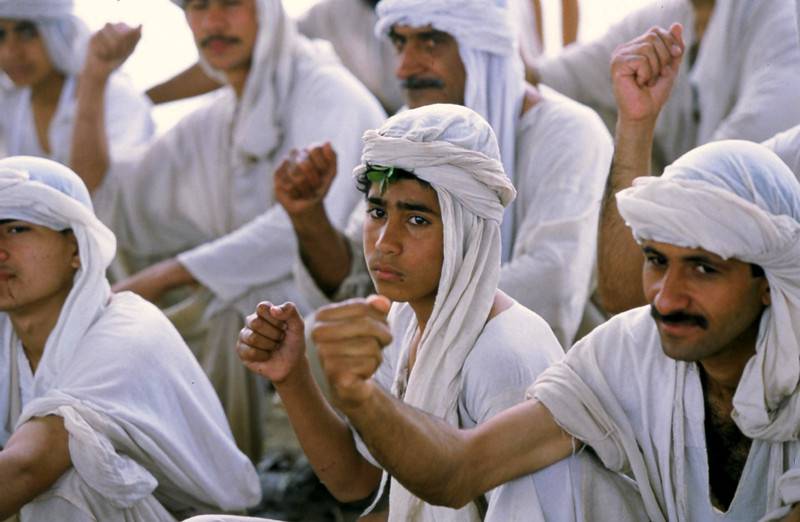
At first glance, the current government of Iraq seeks to create more or less acceptable conditions for ethnic and religious minorities to live in the country - Christians, Yezidis and Mandaeans, officially recognized by the Constitution of the country. There is even a State Council to help Christians, Yezidis and Manday religions. But the Mandaeans themselves complain of certain discrimination, in particular, the ban on the construction of their own schools, houses for the clergy, hotels, and hospitals. In addition, unlike Muslim organizations, the Manday community receives almost no financial support from the state, which deprives it of the opportunity to conduct educational work among Iraqis. But most importantly, the Mandaeans do not feel safe on the land where their ancestors lived for one and a half millennia. And in emigration, you can survive physically, but there is a very high risk of dissolving in the host society: even if the first generation of migrants will observe Manday traditions, mixed marriages in a foreign land are inevitable, and children who grew up in mixed families, and especially their children, are hardly will identify themselves as mandeans.
- P P 'SЊSЏ RџRѕR "RѕRЅSЃRєRёR№
- http://masaratiraq.org/,http://www.erickbonnier-pictures.com/, https://www.bostonglobe.com,
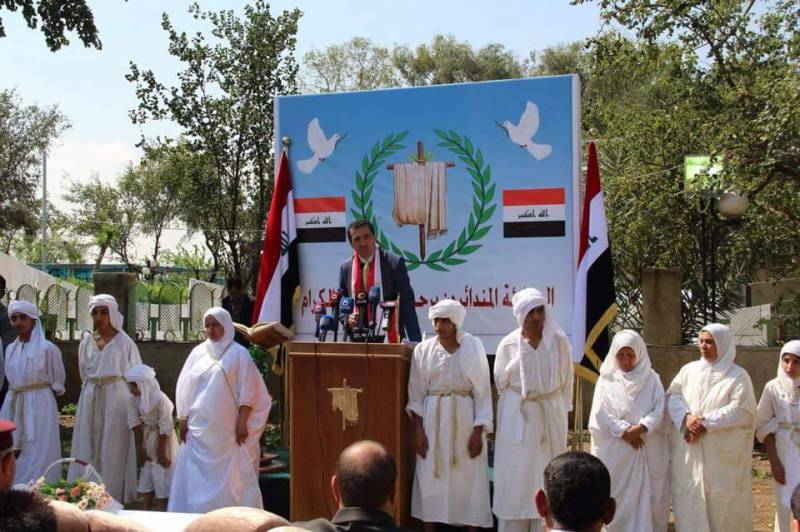
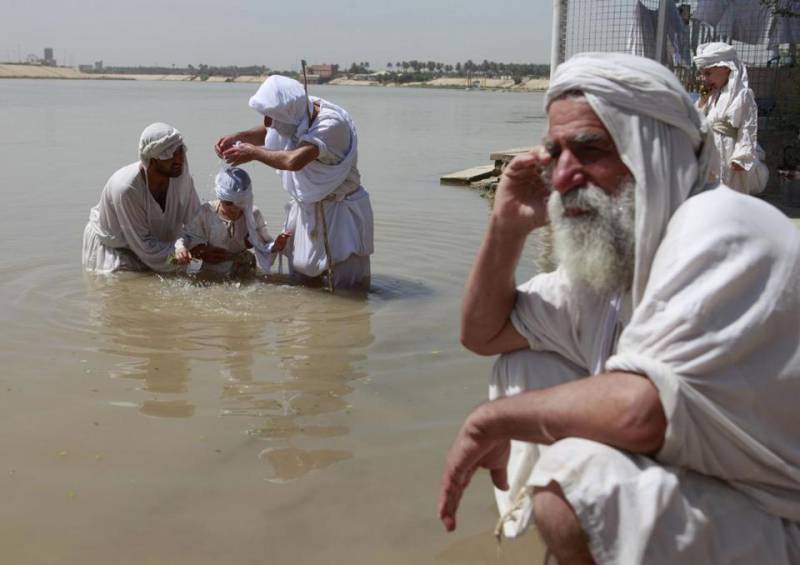
Information